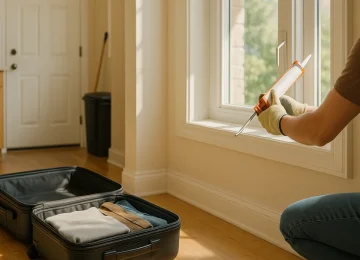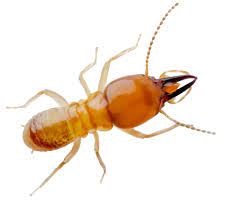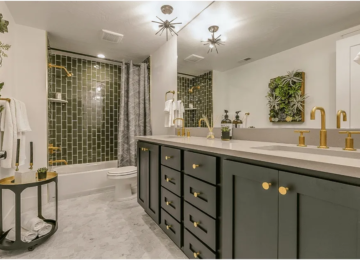No one wants to share their home with pests. Whether it’s ants in the kitchen, mice in the attic, or spiders in the basement, an infestation is stressful, inconvenient, and potentially costly. The good news? With some proactive steps, you can dramatically reduce the chances of pests ever making it through your front door.
In this post, we’re sharing 10 expert tips to pest-proof your home and keep unwanted guests out—before they become a problem.
1. Seal Cracks and Gaps Around the Exterior
Pests can enter through the smallest openings—some insects need less than 1/16 of an inch of space. Check for cracks in your foundation, around doors, windows, utility lines, and vents.
What to do:
- Use silicone caulk or weatherproof sealant to close gaps.
- Add weatherstripping around doors and windows.
- Install door sweeps to eliminate spaces under exterior doors.
2. Keep a Tidy Yard
Your yard is the first line of defense. Overgrown bushes, woodpiles, or standing water can attract everything from ants and mosquitoes to rodents and termites.
What to do:
- Trim shrubs and tree branches away from your home’s exterior.
- Store firewood at least 20 feet away and elevated off the ground.
- Eliminate standing water from birdbaths, pots, and clogged gutters.
3. Store Food in Airtight Containers
Pests, especially ants and roaches, are drawn to easy food sources. Unsealed food in your pantry can quickly attract an infestation.
What to do:
- Use glass, metal, or heavy-duty plastic containers with tight lids.
- Clean up spills and crumbs promptly—especially in hard-to-see places like under the fridge.
4. Don’t Let Garbage Pile Up
Garbage is a buffet for pests. Leaving it out too long—indoors or outside—can draw in flies, raccoons, and rodents.
What to do:
- Empty indoor trash bins regularly.
- Use outdoor trash cans with secure, tight-fitting lids.
- Rinse containers before tossing them to reduce odors.
5. Fix Leaky Pipes and Eliminate Moisture
Most pests need water to survive. Damp areas, like under sinks or around the foundation, can become breeding grounds for insects and attract rodents looking for water.
What to do:
- Repair any leaking pipes or faucets.
- Run a dehumidifier in damp basements or crawl spaces.
- Ensure gutters and downspouts direct water away from the house.
6. Keep Pet Food Sealed and Cleaned Up
Rodents and bugs love pet food just as much as your furry friends do. Leaving it out, especially overnight, invites trouble.
What to do:
- Store pet food in sealed, rodent-proof containers.
- Clean food and water bowls daily.
- Avoid leaving food out overnight, especially outdoors.
7. Install Screens and Check for Tears
Open windows and vents are common entry points for flying pests like mosquitoes and wasps.
What to do:
- Make sure all windows, attic vents, and chimney openings have intact screens.
- Repair or replace any torn or damaged mesh immediately.
- Use fine mesh screen covers for dryer vents and other exterior openings.
8. Declutter Your Home’s Interior
Pests love clutter. Piles of paper, cardboard boxes, and old fabric provide perfect nesting and hiding spots.
What to do:
- Keep storage areas organized and off the floor.
- Rotate or discard items you don’t use regularly.
- Use plastic bins instead of cardboard boxes, especially in basements or garages.
9. Regularly Inspect for Signs of Pests
Prevention also means staying alert. Early signs of pests include droppings, gnaw marks, grease trails, wings, or unusual odors.
What to do:
- Check under sinks, in pantries, behind appliances, and in attics monthly.
- Make pest inspections a seasonal habit—especially in spring and fall.
10. Schedule Routine Professional Pest Inspections
Even the most vigilant homeowners can miss subtle signs of an infestation. A licensed pest control expert can spot vulnerabilities and treat issues early—before they get out of hand.
What to do:
- Schedule at least one pest inspection per year.
- Ask your pest professional about customized protection plans.
- Opt for eco-friendly or family-safe treatments if you have kids or pets.
Final Thoughts
Pest-proofing your home isn’t a one-time fix—it’s an ongoing process that pays off by keeping your space cleaner, safer, and more comfortable. Most infestations start with one small oversight, but with the tips above, you can dramatically reduce your risk.
Still worried about something you’ve seen around your home? A quick inspection from a trusted pest control professional can give you clarity—and a path forward. We recommend pest control plainview.











